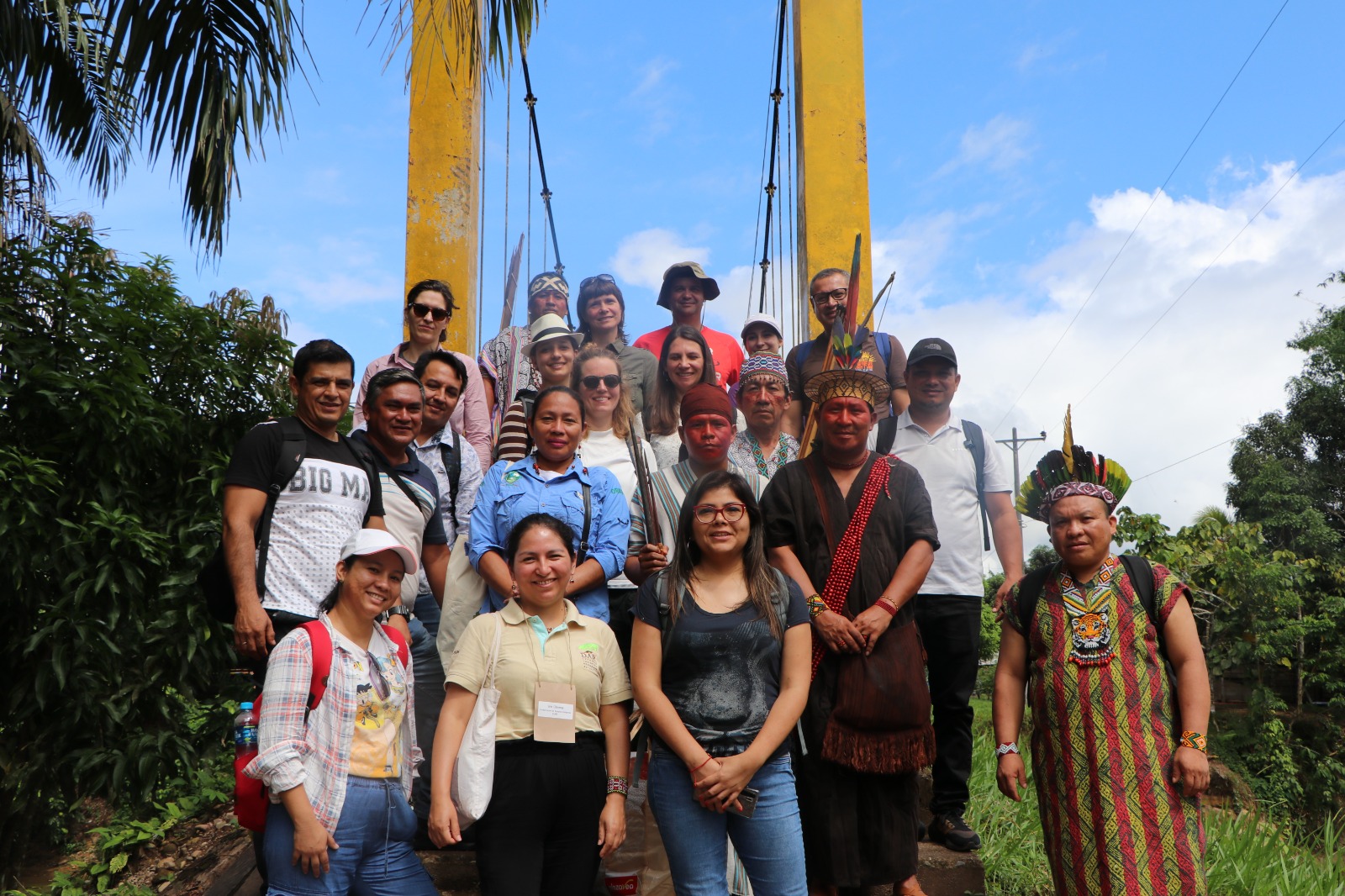With the objective of learning about the achievements of the «Promoting the Conservation of indigenous forests and sustainable development through the creation of Technical Units for Community Forest Management in the Ucayali region» project from the International Climate Initiative (IKI), we visited the Native Community Yamino, in the province of Padre Abad in Ucayali, a German delegation, made up of officials from the Federal Ministry for the Economy and Climate Protection (BMWK, for its acronym in German), the Federal Ministry for the Environment, Nature Protection, Nuclear Security and Consumer Protection (BMUV, for its acronym in German), and Zukunft Umwelt Gesellschaft (ZUG).
The project began in 2019 and concluded in 2022, and its purpose was to promote the conservation of indigenous forests through Community Forest Management (MFC) with the objective of reducing deforestation in Ucayali, and thus contribute to the mitigation and adaptation to climate change.
Among the main achievements is the strengthening of the forest oversight of 52 native communities belonging to 10 of ORAU’s base federations, as well as strengthening 72 communities, covering 850,000 hectares of forest, within which 2,000 community members have participated directly, or indirectly, in the program. Likewise, in 2021, the publication of Regional Ordinance No. 023-2018-GRU-CR was promoted, which approved the creation of the Forest and Wildlife Management Unit, thus allowing the implementation of the two UTMFC of Coronel Portillo and Watchtower. To learn more about this initiative and its results, click here.
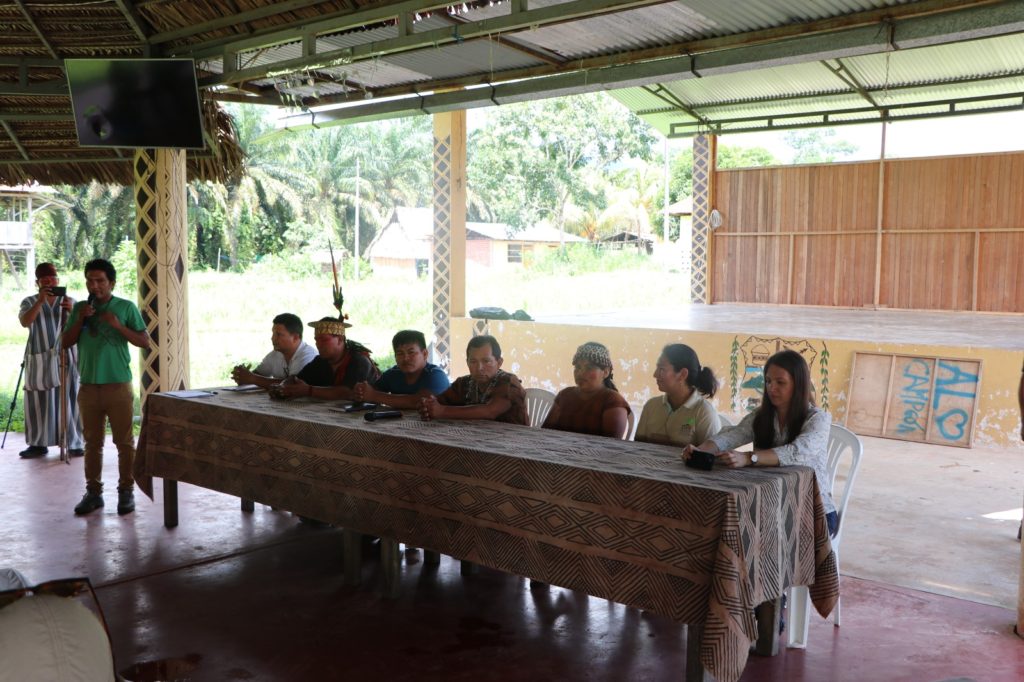
As part of the visit to the community, a table of honor was set up where the representatives of the different organizations in attendance exchanged comments on the initiative. The president of the community, Fernando Estrella; and the vice president, Diana Odicio, thanked and highlighted the important work that has been achieved as a result of the joint work between indigenous organizations, the State, civil society and international organizations.
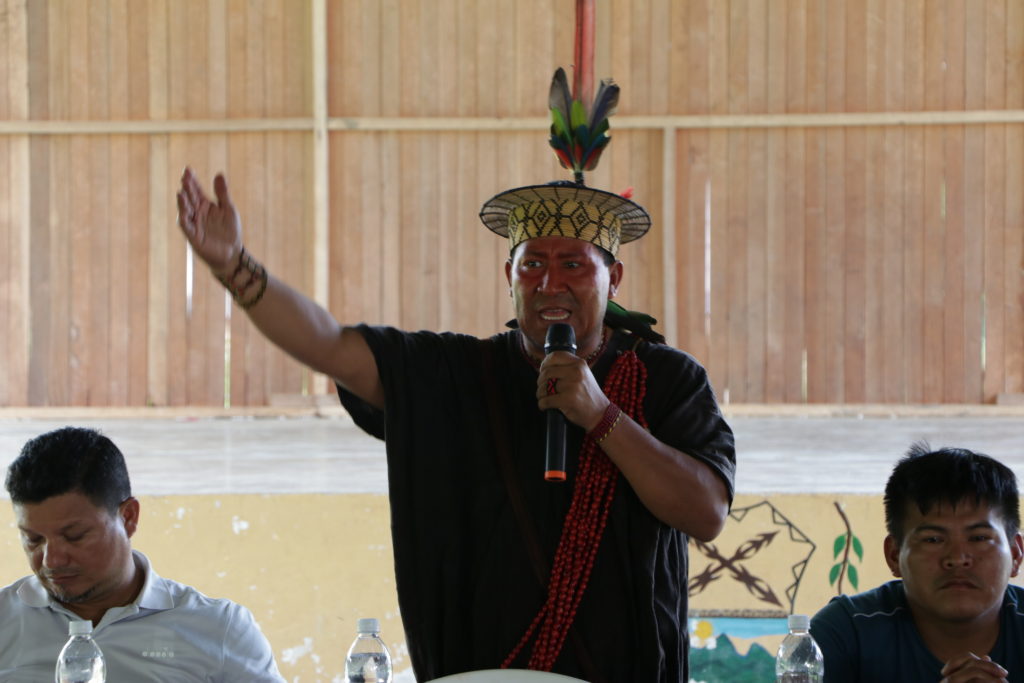
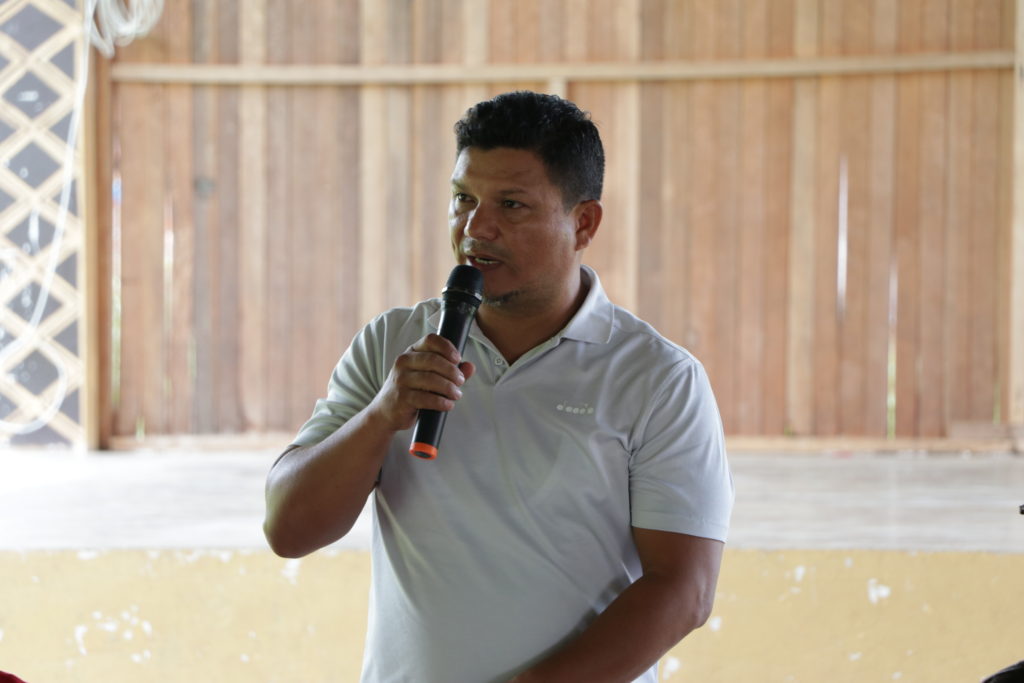
Likewise, Berlin Diques, president of AIDESEP Ucayali Regional Organization (ORAU), also thanked the efforts made by all the actors, highlighting the participation of indigenous women in the training and in the formation of the vigilance committees, where they represent 15%. On the other hand, Miguel Cambero, delegate of the Ucayali Regional Forestry and Wildlife Management, highlighted the results of the project, commenting that the objectives have been widely exceeded with more than 70 communities trained, including some that were not included in the initial plan.
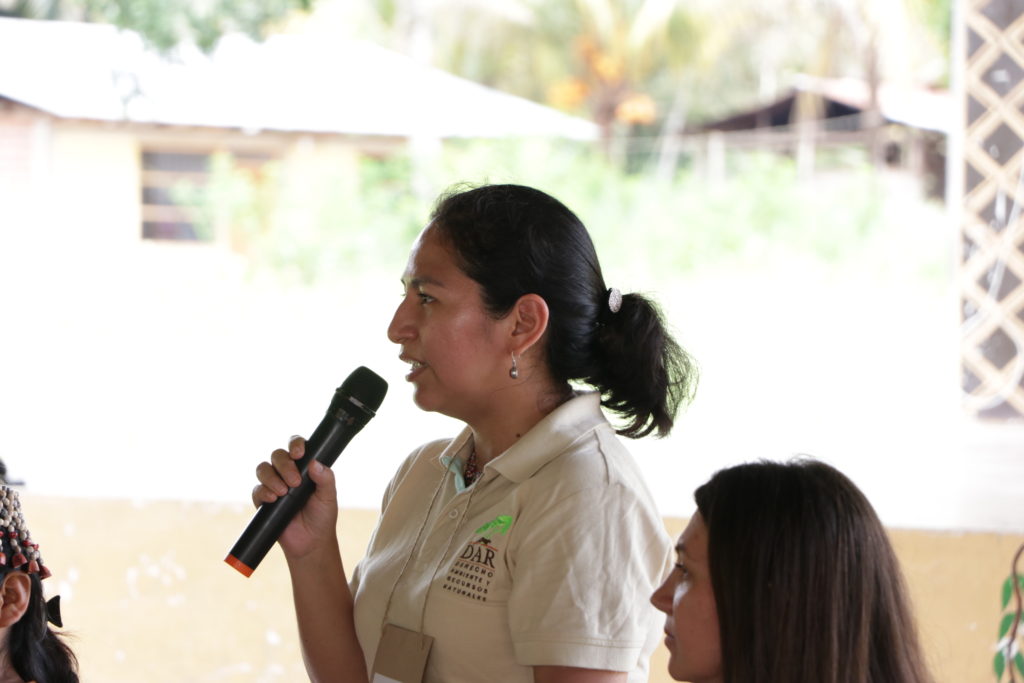
From Derecho, Ambiente y Recursos Naturale (DAR), Iris Olivera, Project Leader of the Sustainability program, emphasized the intercultural approach that was used to carry out the training guides in Community Forest Management (CFM), since they were taking into account indigenous knowledge, recognizing that the peoples have ancestral knowledge and, over the years, are the ones who have assumed the training of their peers.
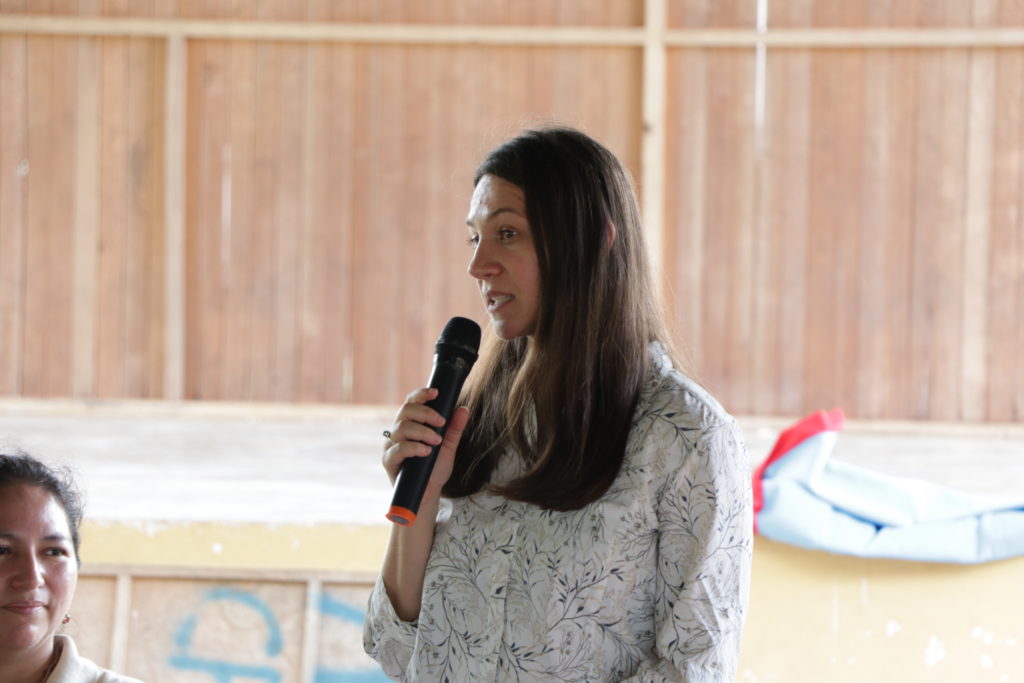
Lastly, Toa Loaiza, representative of the Federal Ministry for the Environment, Nature Protection, Nuclear Safety and Consumer Protection (BMUV, for its acronym in German), called on members of the community to tell what have been the impacts of the project and propose new intervention needs.
From the community, a presentation was made on Community Forest Management (CFM): cubing and measurement in standing trees with the forestry backpack methodology; and the implementation of activities on Control and Surveillance: monitoring through the use of technologies. This was carried out by César Lopez Tanchiva, coordinator of the Community Forest Surveillance and Control Committee (CVCFC)
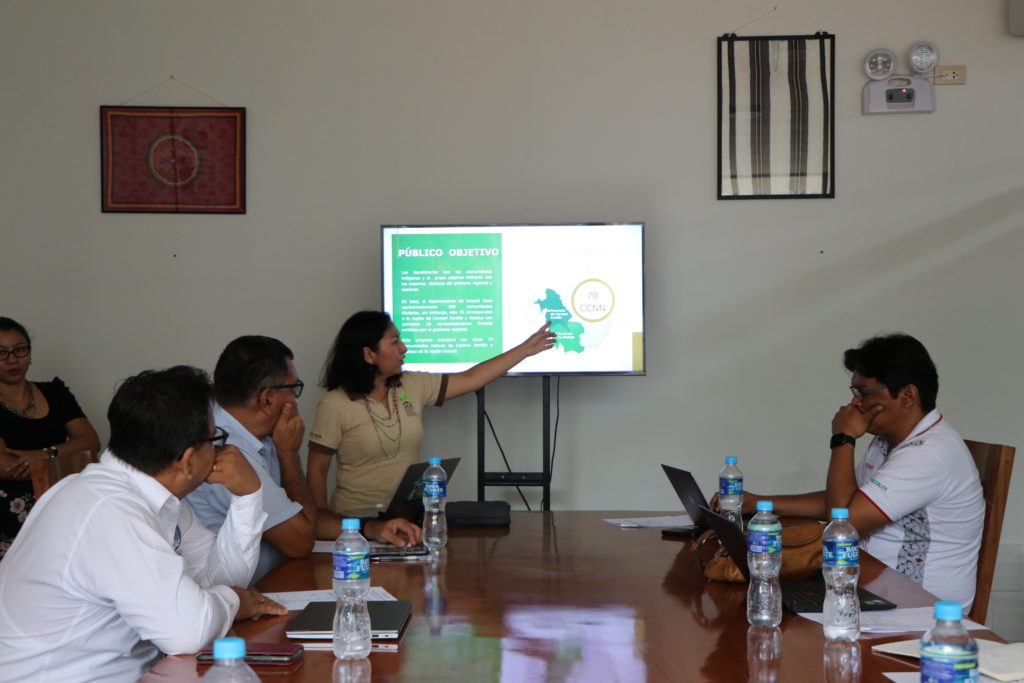
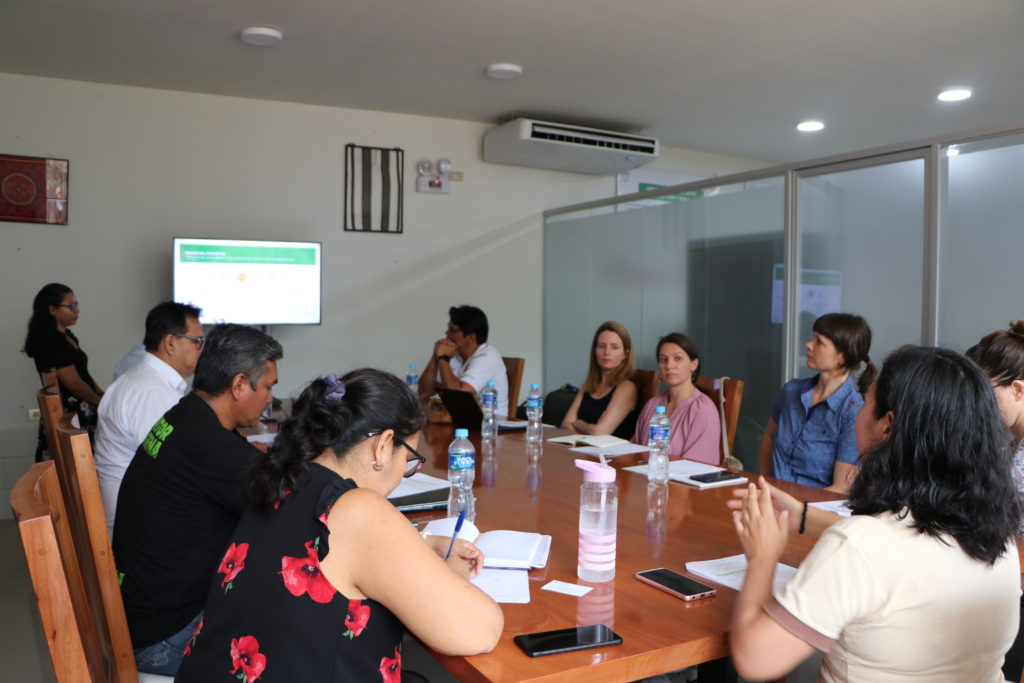
On Friday, March 17, a meeting was held between the German delegation and different public and private actors where the results of 3 projects financed by IKI and the established synergies were presented. The projects made visible were: «Promote the conservation of indigenous forests and sustainable development through the creation of Community Forest Management Technical Units in the Ucayali region» implemented by the National Forest and Wildlife Service (SERFOR), Regional Government from Ucayali through the Regional Forestry and Wildlife Management (GERFFS-GOREU), ORAU and DAR; «Business models to address the drivers of deforestation in the Peruvian Amazon» executed by the International Center for Tropical Agriculture (CIAT); and «NDC Peru: Support for the implementation of the National Strategy against Climate Change» executed by GIZ.
In those days we´ve had the participation of representatives from GIZ, ORAU, GERFFS-GOREU, the Native Federation of Cacataibo Communities (FENACOCA), the Ucayali Regional Environmental Authority (ARAU) and DAR.


